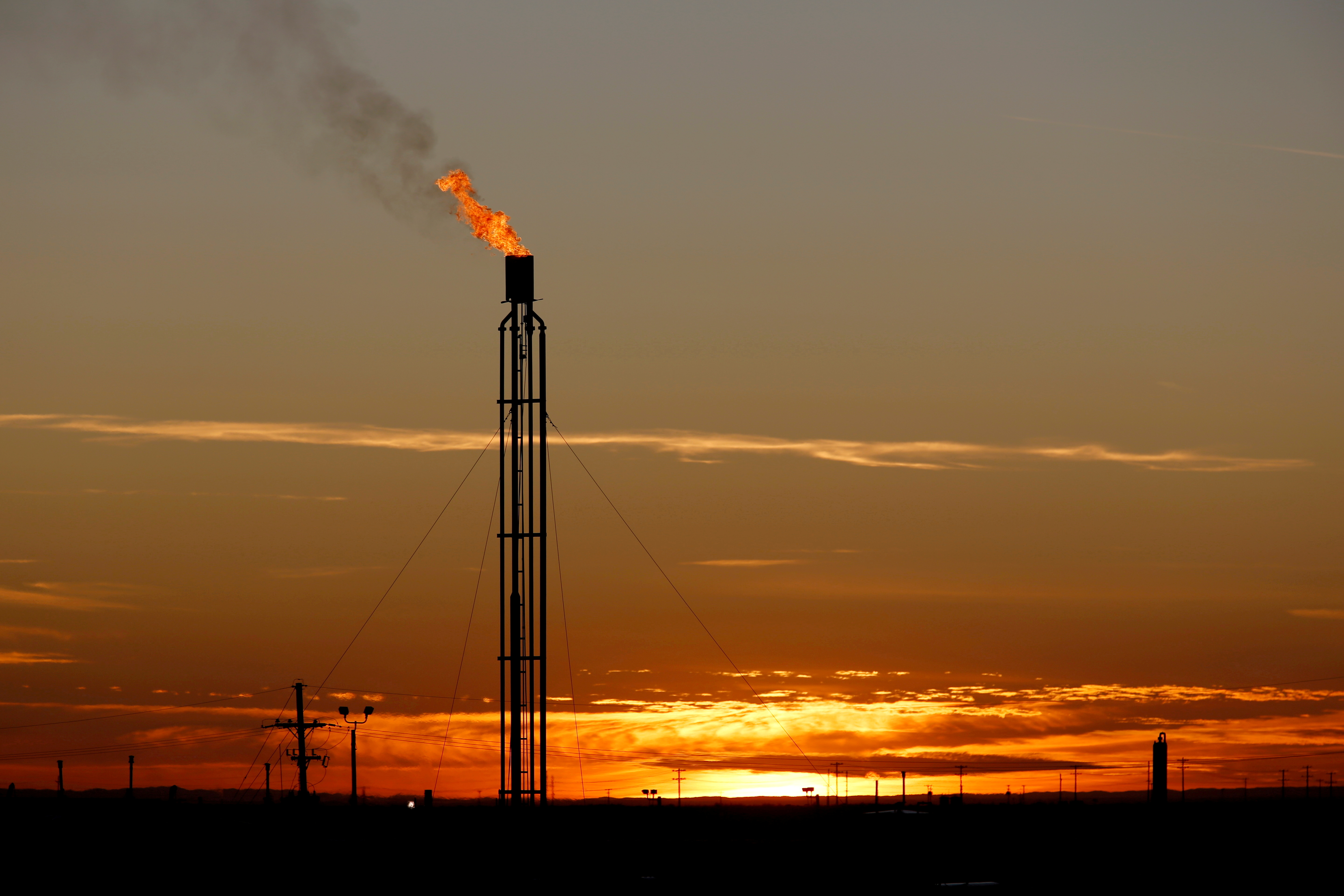
HOUSTON, Dec 8 (Reuters) – As top oil and gas officials reconvene on Wednesday to discuss how they expect to respond to demands for more energy with lower greenhouse gas releases, one topic will be missing: Cutting emissions from customers’ fuel use.
Exxon Mobil (XOM.N) and Pioneer Natural Resources (PXD.N) in sessions at this week’s World Petroleum Congress pledged to slash greenhouse gas emissions from their production in the top U.S. shale field. Both are moving to electrify drilling operations and halt the routine burning of unwanted natural gas, two big contributors to greenhouse gases.
What’s missing so far was any talk of cutting emissions from customers’ use of their fuel, commonly called Scope 3 emissions. Instead, congress panelists have used the stage to argue against moving too quickly from oil and gas to renewables. read more
In the United States, oil companies have largely rejected any plan to set targets on Scope 3 emissions despite public pressures to do more.
“Companies have to take care of Scope 1 and Scope 2 emissions,” said ConocoPhillips (COP.N) Chief Executive Ryan Lance on Tuesday. While Conoco shareholders last spring voted 58% in favor of setting Scope 3 targets, Lance said his company is focused on those greenhouse gases “we create as a business (and) we have to have a sustainable path to reduce those.”
“It is more challenging for oil companies to deal with Scope 3,” said Keisuke Sadamori, a director at producing nations’ group the International Energy Agency. Restraining customer emissions “is a shared responsibility” between consumers, companies and policy makers, he said.
“There is a role for consumers to play as well,” American Petroleum Institute (API) senior vice president of Policy, Economics and Regulatory Affairs Frank J. Macchiarola told Reuters. “And for consumers it is ultimately about choice.”
The oil industry has a challenge to reduce the most emissions with the least cost for consumers, at the risk they will not adopt solutions that mean paying more, especially in an environment of rising inflation.
Sonya Savage, energy minister for Alberta, Canada’s largest oil and gas producing province, said in a panel on Tuesday that regulators must weigh the needs of consumers in devising clean fuel mandates.
“The shortage of natural gas we saw is teaching us that some fossil fuels like diesel are still needed. What is going to lead us to net zero emissions is not rhetoric. Actions will,” she said.
Share This:




 CDN NEWS |
CDN NEWS |  US NEWS
US NEWS 





























